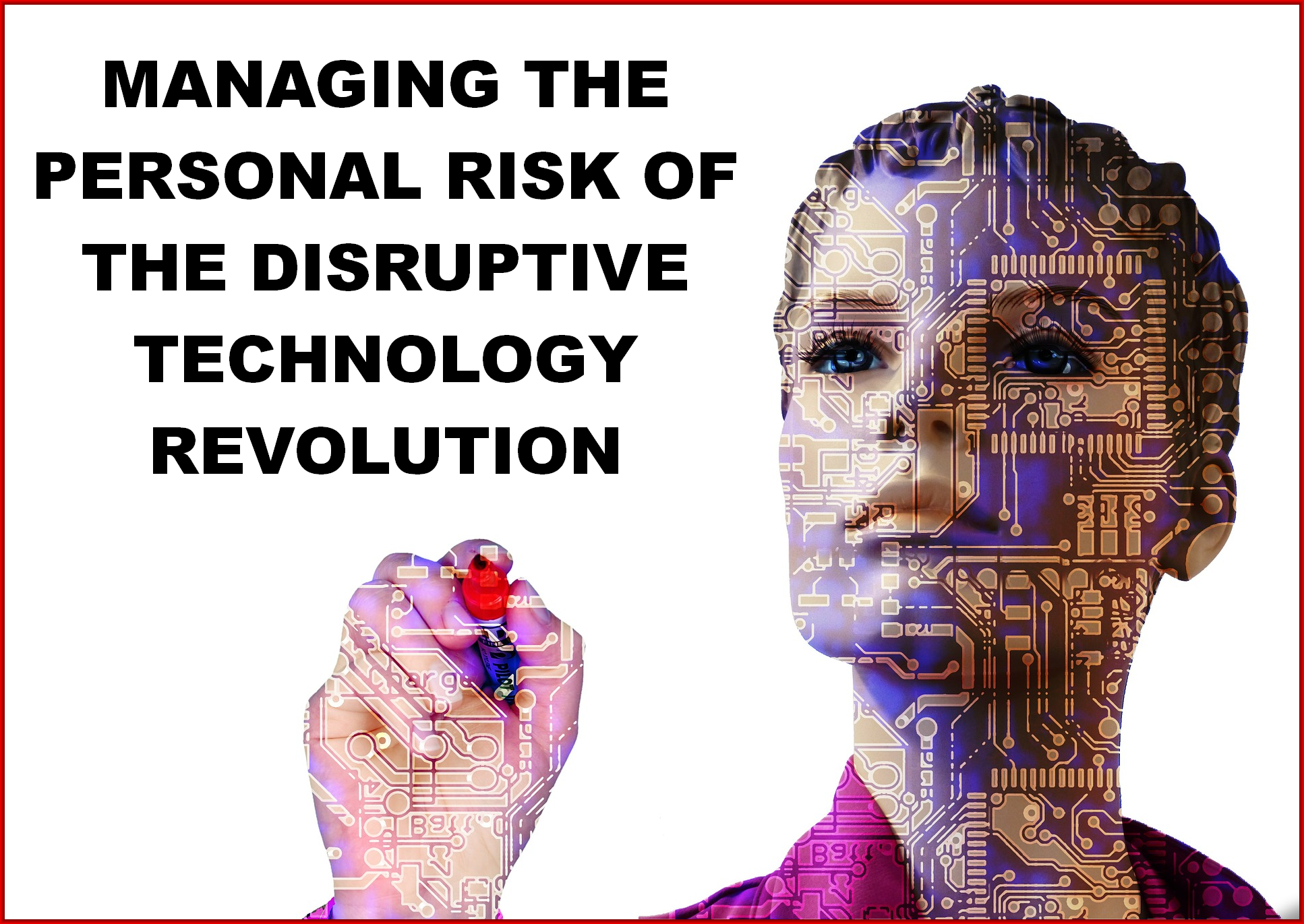Digital disruption is transforming all aspects of life from how we interact with one another, what we do in our leisure time, and how we go about our workday.
The most severe personal consequences that must be managed are the risks arising from:
- Depersonalization, where everyone is just another avatar or hashtag;
- Instant access, where time and space boundaries in the past are breached through electronic devices that make us electronically available at almost any time or any place.
- Expert systems which are rapidly reducing the value of individual education and experience as artificial intelligence and learning capabilities impacts many procedural processes in our industrial environment.
- The total replacement of personnel by the disruption and elimination of robotic systems.
- Demographics and being part of an aging population with fewer and fewer opportunities.
Since digital disruption comes with significant personal implications, how can one best prepare for a world in transformation?
One, not every country, industry, or company will have the finances, technology, or inclination to compete with first-world nations that are early adopters of technology. Thus there is significant opportunity in taking known technology and implementing in environments where such technology is non-existent, or unions are hostile to technological change. A mastery of off-the-shelf technology building blocks, especially those that are available at little or no charge as "open source" projects represents an abundant source of potential individual revenue opportunities.
Two, while customer-facing systems are becoming more prevalent, not everybody appreciates impersonal customer service, and those individuals who can deal with both man and machine will still be able to offer significant value with customized personalization.
Three, there will always be a need to individuals to recognize, catalog, and manage the risks inherent with technology . Especially where transactional speed can turn a simple coding error into a multi-million dollar catastrophe with reputational impacts.
Four, one should not overlook the fact that with increasing technology comes increasing government regulations. Where complexity is baked into the system to mislead or muddle rules, regulations, and requirements in favor of professionals such as lawyers, accountants, and consultants.
Five, Luddites, technophobes, and people who just do not want to deal with technology will often pay a premium for expert assistance to set-up, operate, and maintain their systems. Whether in the form of a personal arrangement or more formal consultancy, there will always be people who want to others deal with complexity.
Six, our aging infrastructure is in dire need of repair, replacement, refreshment, and build-out to provide additional capacity at cost-effective prices. Considering the degree to which we take our infrastructure for granted, individuals often miss the opportunities inherent in infrastructure projects.
In the final analysis, digital-savvy individuals with some degree of comfort and fluency in the language of technology are more likely to survive the coming years than those who accept that today is much like yesterday and tomorrow will be much like today.
There is no excuse for not pursuing advanced education. Given the internet, the instructional videos on social media outlets like YouTube, and the abundance of free courses from prestigious universities like MIT (Massachusetts Institute of Technology) and others, only time, motivation, and the capacity to lean stand between an individual and multiple independent sources of revenue which can future-proof your employment opportunities.
Are you asking yourself, Am I Next?

